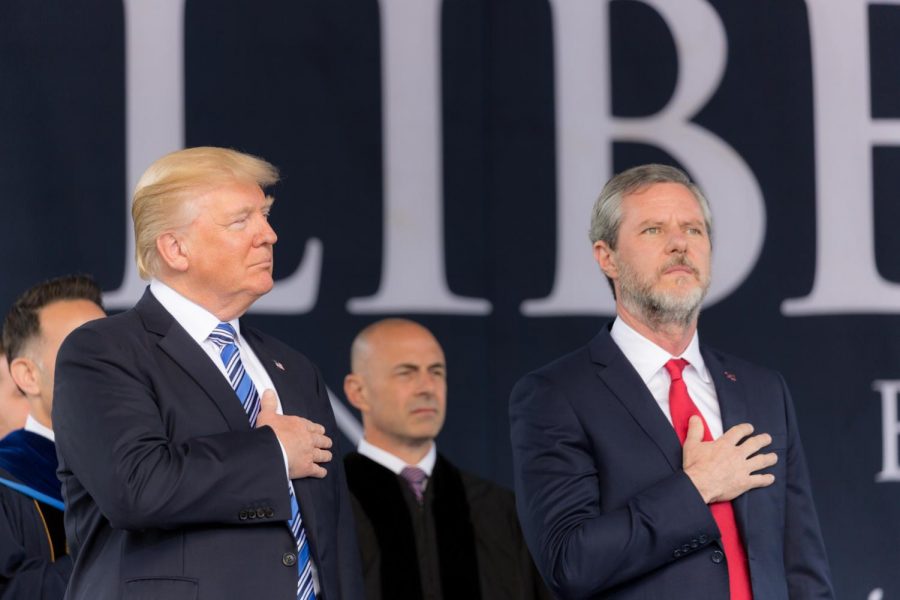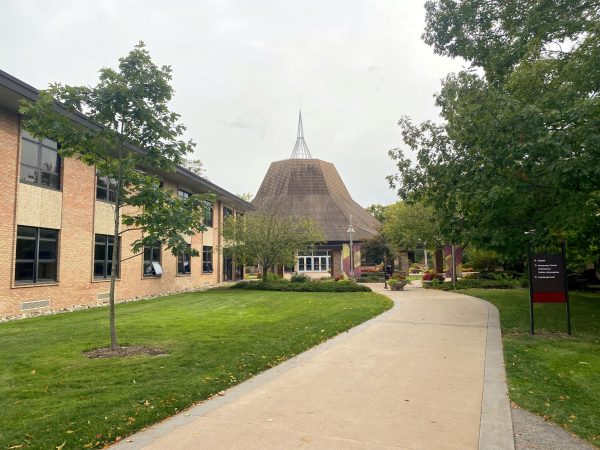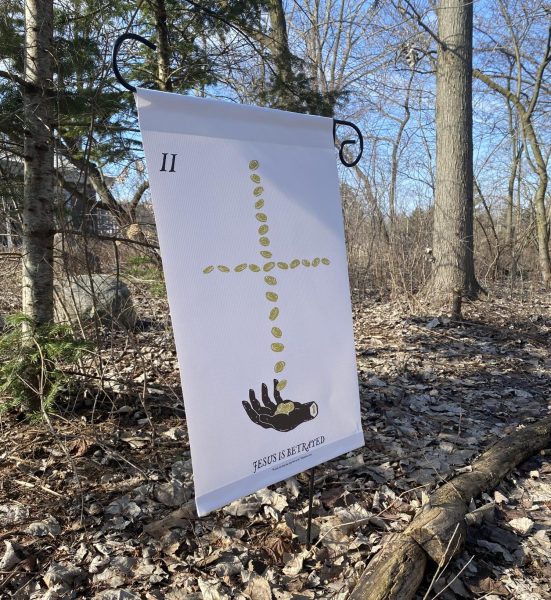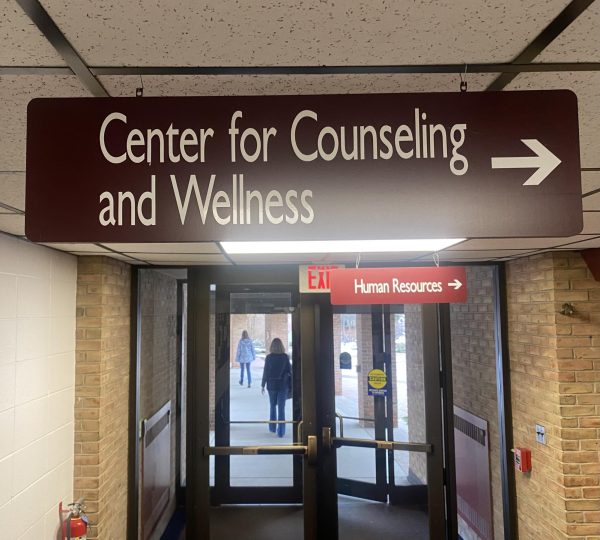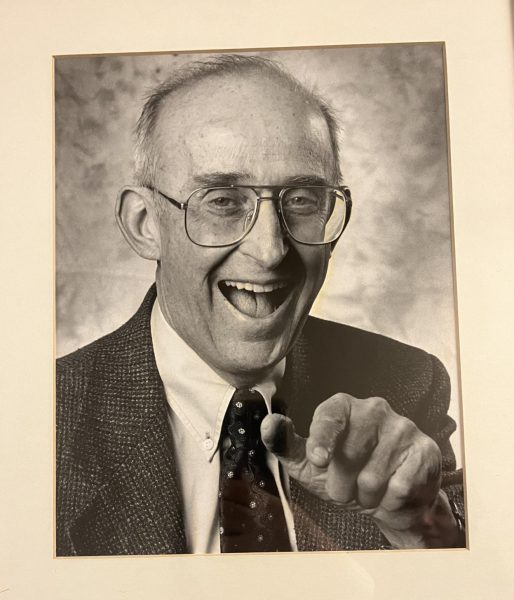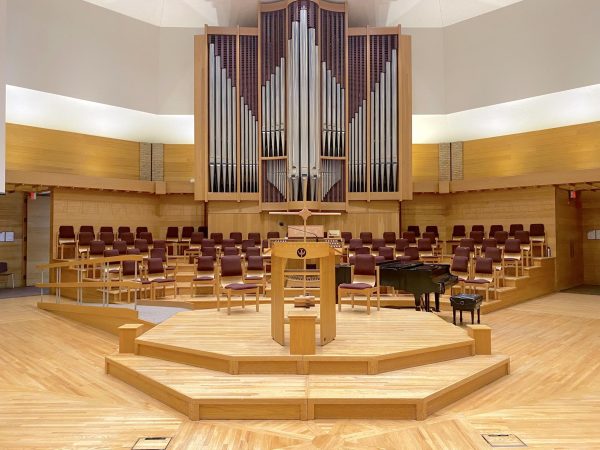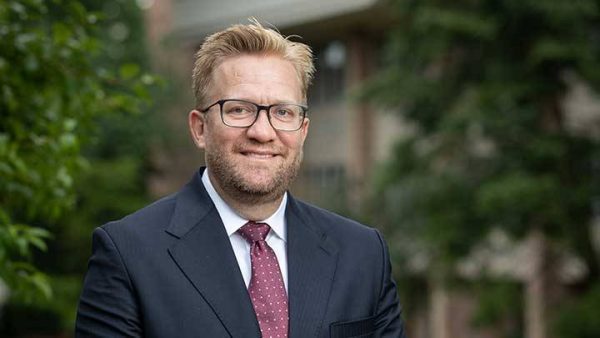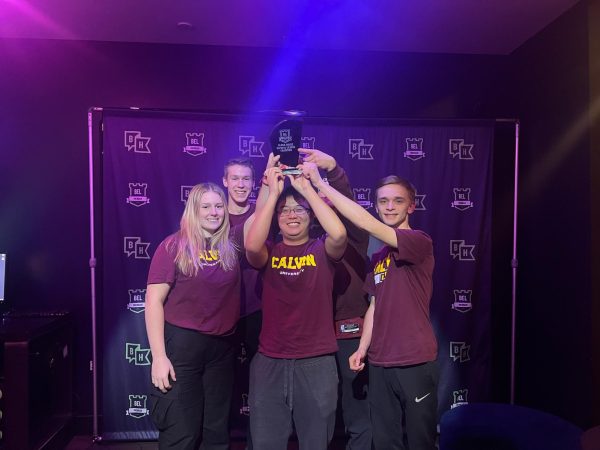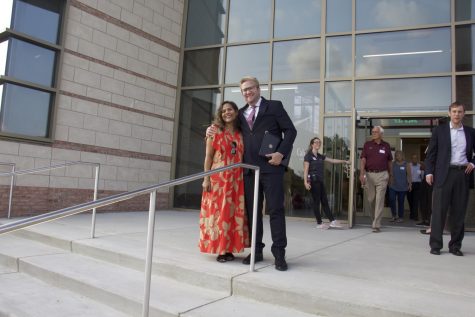‘Red Letter Revival’ to combat ‘toxic evangelicalism’
The Red Letter Christians (RLC) movement, co-founded by activist and 2018 January Series speaker Shane Claiborne, is hosting a public gathering of word and worship in Lynchburg, Va, home of the famously conservative Christian Liberty University, in April. As stated in its Feb. 8 announcement, this “Red Letter Revival” rally is for those “who are curious about Jesus and troubled by the state of evangelicalism in America.”
Red letter edition Bibles, in which the words attributed to Jesus Christ are printed in red, were first published in 1899. It is from this tradition that the Red Letter Christians draw their name. Established in 2007 out of concern for the divergent and increasingly politicized use of the world “evangelical,” the goal of the RLC movement is to take the dominical words at face value, catalyzing a movement of believers who espouse the counter-cultural teachings of Christ.
The Red Letter Revival event proves a departure for the RLC, whose work is principally digital, as well as a topic of contention. The Revival, scheduled for April 6-7, is described as a celebration of Christ through worship and a lineup of speakers.
Shane Claiborne, who spoke on the death penalty at this year’s January Series, is slated to speak at the spring Revival. Claiborne is a prominent Evangelical Christian activist and author. He has lived alongside Mother Teresa in Calcutta and his work often centers on the promotion of nonviolence and the servanthood of Jesus Christ.
Claiborne is not the Revival’s only tie to Calvin. Many others included in the Revival’s line up, including Lisa Sharon Harper, LeCrae and Switchfoot, have spoken or performed at Calvin.
Claiborne has been promoting the Revival through social media even prior to its official announcement, often with the hashtag #LynchburgRevival. This hashtag — the location of the Revival — illustrates its controversy.
The Revival is set to take place at E.C. Glass Auditorium in Lynchburg, Va., less than 5 miles from Liberty University. Liberty is an evangelical liberal arts institution which boasts over 100,000 enrolled students—the seventh largest in the United States. Its president, Jerry Falwell Jr., has made national headlines for his outspoken political views. Falwell Jr. has been a supporter of President Donald J. Trump since the early 2016 conception of his campaign, and has backed his leadership throughout Trump’s first year of presidency. Falwell Jr. has expressed approval on Twitter, praising Trump’s boldness in response to the Charlottesville tragedy, as well as in an August interview on “Fox & Friends,” saying:
“President Donald Trump does not have a racist bone in his body, I know him well.”
Claiborne has directly addressed President Falwell Jr. in a tweet, asserting that the “#LynchburgRevival” would aim to challenge the “toxic evangelicalism of @JerryFalwellJr.”
The decided political endorsement of its president has remained a measure of discord for Liberty University, culminating most publicly on Oct. 30, 2017, when pastor Jonathan Martin was escorted and banned from campus.
Martin had expressed over Twitter his plans to gather Liberty students to protest the Trump administration peacefully. Martin was escorted from campus before the protest could occur, the university citing the safety and security of the school. Statements released by Falwell Jr. list Martin’s political stances as areas of concern.
Four days after Jonathan Martin was escorted from Liberty’s campus, the Red Letter Christians released an open letter to Jerry Falwell Jr. on their website. The pastors and activists scheduled to speak at the upcoming Revival signed their names onto it, among them Shane Claiborne.
The letter begins as an austere critique of the institution, particularly of a university president who, it claims, “might prefer to asphyxiate a prophetic Christianity that criticizes your personal political positions.”
The letter goes on to note inconsistencies between the red words of Jesus Christ and the Christian nationalism.
Finally, the letter concludes, “we are willing to pay our own way to come to Liberty University and engage in the debate which you have said is welcome,” because they believe “that the truth of the gospel is greater than our individual and corporate sins.”
In an interview, Calvin professor Joe Kuilema, who spent time with Claiborne at meetings for both the North American Association of Christians in Social Work and Bryan Stevenson’s Equal Justice Institute, commented on the beauty of the RLC’s challenge to the pre-established narratives surrounding spaces such as Lynchburg and Liberty. While he cautioned against an unbalanced emphasis on specific Scripture passages, Kuilema expressed unity with Claiborne.
“I think we’re on the same page. We’d both like the church to talk more about justice, and more importantly, to act justly.” Kuilema, who has served as a social worker in oppressed communities, also noted:
“You cannot work in such communities for any meaningful amount of time without coming to the conclusion that institutional racism is real, that the criminal justice system is unjust, that the immigration system is unjust, and that the Church must do something about it.”




